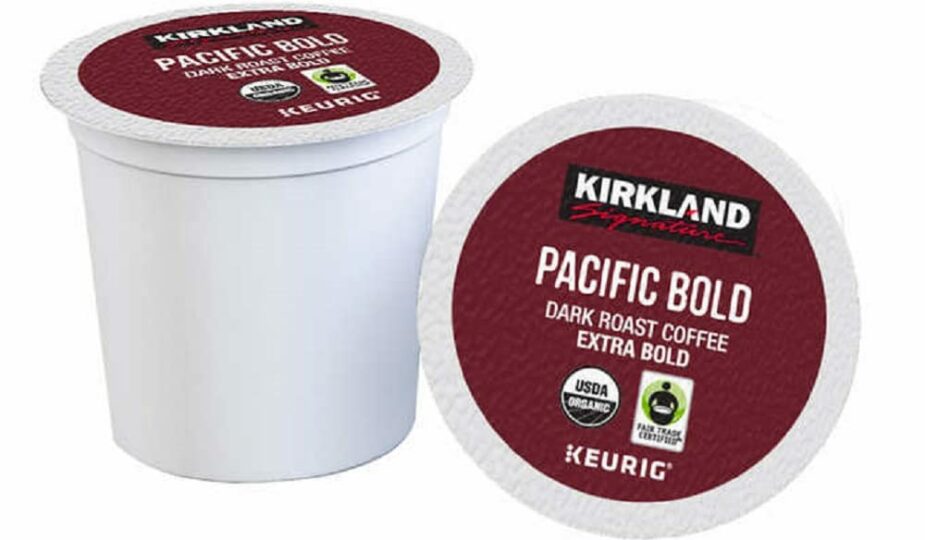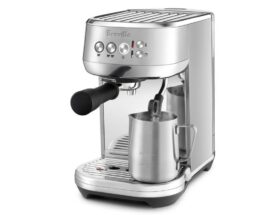
Are Kirkland K-Cups Recyclable? Exploring Sustainable Disposal Options
Are Kirkland K-Cups recyclable? The answer, my friend, is a resounding YES! But wait, there’s a catch – a catch that comes with a satisfying eco-friendly twist. Dive into the world of recycling K-Cup® pods and discover how separating these small components is the key to embracing sustainability. These pods are a blend of plastics, aluminum, organic materials (hello, coffee grounds!), and a paper filter.
Intrigued by the potential of recycling each of these items independently? Exciting, right? Let’s embark on a journey to better understand why the sum of these parts doesn’t quite make for an easily recyclable whole, and unveil a recycling strategy that’s as easy as sipping on your morning brew. Elevate your coffee ritual while minimizing your environmental footprint – all by mastering the art of recycling Kirkland K-Cups.
Table of Contents
The Dilemma of Kirkland K-Cups
Kirkland K-Cups, manufactured by Costco, are a widely used brand of coffee pods. However, one of the main concerns with Kirkland K-Cups is their recyclability. These pods are made from a combination of materials, including plastic, aluminum, and paper. While these materials are recyclable individually, the combination poses a challenge in recycling facilities.
Interesting fact: Did you know that over 13 billion coffee pods are thrown away each year? That's enough to circle the Earth more than 12 times! It's time to rethink our coffee waste and find sustainable solutions for our beloved beverage.
The main issue lies in the fact that the plastic portion of the K-Cup often contains residual coffee grounds, which contaminate recycling streams. This contamination can render the entire batch of recyclables unrecyclable, leading to increased waste. Therefore, simply tossing your empty Kirkland K-Cups into the recycling bin is not a sustainable solution.
Sustainable Disposal Options
Fortunately, there are alternative ways to dispose of Kirkland K-Cups to minimize their environmental impact. Here are some eco-friendly options you can consider:
- Separate the Materials: Begin by separating the different components of the K-Cup. Carefully peel off the paper lid, remove the filter with coffee grounds, and separate the plastic cup from the aluminum lid. This process allows each material to be disposed of correctly.
- Recycle Separately: Once the materials are separated, you can recycle them individually. The paper lid and filter can go into your compost or green bin, while the aluminum lid can be recycled with other metal materials. However, the plastic cup still poses a recycling challenge and will need to be handled differently.
- Kirkland K-Cup Recycling Programs: Some regions have specialized recycling programs that can handle the recyclability of K-Cups more effectively. Check with your local recycling facility or municipality to see if they have any specific guidelines or programs in place.
- K-Cup Recycling Machines: Another option is to invest in a K-Cup recycling machine. These machines can separate the different materials and process them accordingly. While it requires an initial investment, it can significantly reduce the waste generated from K-Cups and contribute to a more sustainable coffee routine.
Exploring Sustainable Coffee Pod Alternatives
If you’re looking to reduce your coffee pod waste altogether, there are sustainable alternatives to consider. Here are a few options:
- Reusable Coffee Pods: Consider purchasing reusable coffee pods made from stainless steel or other eco-friendly materials. These pods can be filled with your favorite coffee grounds and used multiple times, eliminating the need for single-use pods.
- Compostable Coffee Pods: Look for coffee pods that are certified compostable. These pods are typically made from plant-based materials and break down naturally, reducing their impact on the environment.
- Local Coffee Shops: Support local coffee shops that prioritize sustainability. Some coffee shops offer bulk coffee options, allowing you to bring your own container and fill it up with your preferred coffee. This reduces packaging waste and supports the local economy.
Reducing Coffee Waste
Apart from exploring alternative coffee pod options, there are other ways you can reduce coffee waste in your daily routine. Here are some tips:
- Buy in Bulk: Purchase coffee beans in bulk instead of individually packaged pods. This reduces packaging waste and allows you to control the portion size according to your needs.
- Compost Coffee Grounds: Instead of throwing away your coffee grounds, consider composting them. Coffee grounds add valuable nutrients to compost, making them a perfect addition to your garden.
- Donate Unused Coffee: If you have any unopened coffee pods that you don’t plan on using, consider donating them to local shelters or food banks. This way, the coffee doesn’t go to waste, and it benefits those in need.
By considering these alternatives and taking steps to reduce waste in your coffee routine, you can make a positive impact on the environment and enjoy your daily cup of coffee guilt-free.
Tips: Proper Disposal of Kirkland K-Cups and Sustainable Alternatives
1. Check for Recyclability
Before disposing of your Kirkland K-Cups, it’s important to determine whether they are recyclable. The plastic components used in K-Cups can vary, so it’s essential to check the packaging or the official Kirkland website for recycling instructions. Look for any symbols or labels indicating recyclability.
2. Separate and Clean
If your Kirkland K-Cups are recyclable, start by separating the different components. Typically, K-Cups consist of three parts: the plastic cup, the aluminum foil lid, and the coffee grounds. Carefully remove the lid and dump the coffee grounds into a compost bin or organic waste container.
Make sure to rinse out any remaining coffee residue from the plastic cup to avoid contamination during the recycling process.
3. Recycle the Plastic Cup
If your local recycling facilities accept plastic cups, rinse them thoroughly and place them in the appropriate recycling bin. Some areas may require you to remove the foil lid before recycling, so make sure to check your local recycling regulations.
If you find that your local recycling facilities do not accept plastic cups, don’t worry! There are sustainable alternatives available – keep reading for more information.
4. Properly Dispose of Aluminum Foil Lid
Aluminum foil is generally accepted at recycling facilities. However, it’s crucial to check if your local recycling program accepts this material. If they do, rinse off any coffee residue and recycle the foil lid accordingly. If not, please dispose of it according to your local waste management guidelines.
5. Explore Sustainable Coffee Pod Alternatives
While recycling is a great option, reducing waste altogether is even more efficient. Consider switching to eco-friendly and sustainable coffee pod alternatives. Here are a few options:
- Reusable Coffee Pods: Invest in reusable pods that allow you to fill them with your preferred coffee grounds. Simply wash and refill them for each use, eliminating the need for single-use pods.
- Compostable Coffee Pods: Look for coffee pods made from compostable materials, such as plant-based or biodegradable materials. These pods break down naturally, reducing their environmental impact.
- Whole Bean Coffee: Opt for whole bean coffee and use a traditional coffee maker or a French press. This eliminates the need for pods entirely and results in a fresher, more flavorful cup of coffee.
6. Reduce Waste in Your Coffee Routine
Beyond using sustainable pod alternatives, there are additional steps you can take to reduce waste in your overall coffee routine:
- Buy in Bulk: Purchase coffee in larger quantities to minimize packaging waste. Look for brands that offer coffee in recyclable or compostable packaging.
- Compost Coffee Grounds: Instead of throwing away coffee grounds, compost them. Coffee grounds make excellent fertilizers and can enrich your garden soil.
- Choose Eco-Friendly Filters: If you use traditional coffee makers, choose unbleached, biodegradable filters or consider using a reusable metal mesh filter.
By following these steps and adopting more sustainable practices, you can enjoy your daily cup of coffee while significantly reducing your environmental impact.
Wrap Up
In conclusion, while Kirkland K-Cups are unfortunately not recyclable due to the combination of plastic and aluminum used in their construction, there are sustainable disposal options available. By separating the components of the pods and disposing of them in the appropriate recycling bins, you can help reduce the environmental impact of these coffee pods.
Additionally, there are alternative coffee pod options that prioritize eco-friendliness. Brands such as Tencoffees offer sustainable coffee pods made from biodegradable materials, making them a great choice for environmentally conscious coffee drinkers.
Remember, reducing coffee waste is not just about the type of coffee pod you use. It’s also about other aspects of your coffee routine. Consider using a reusable coffee filter or opting for a French press or pour-over method to minimize waste. And don’t forget to compost your coffee grounds!
Don’t forget to explore our website for more informative articles and stay updated with the latest coffee trends and tips. Thank you for reading, and cheers to a sustainable and enjoyable coffee experience!









